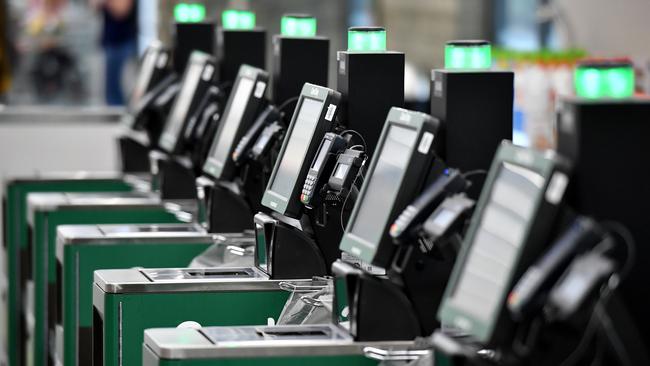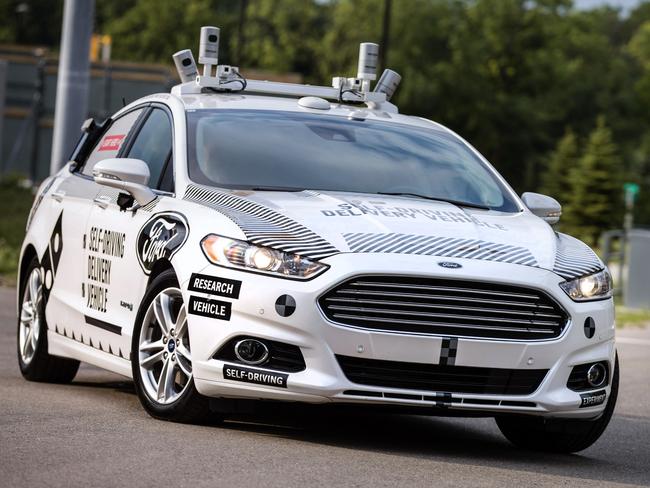Anthony Albanese: Teach for jobs with automation in mind
THE thought of three million Australians in jobs that could soon be automated is scary but if handled correctly, new work practices could offer exciting prospects, Anthony Albanese says.

Opinion
Don't miss out on the headlines from Opinion. Followed categories will be added to My News.
WHEN you consider the way the world has changed in the past 50 years, it is mind-boggling to imagine what it will look like 50 years from now.
Don’t think about that for too long. The accelerating pace of change will make your head spin.
But consider this: change has no conscience. While change can liberate us from certain kinds of labour, it is indifferent to its impacts on our jobs.
It’s a bit like the market; it can serve a purpose but, left unregulated, can produce unequal outcomes.

A good example of the challenge of balancing progress against jobs and human welfare is the looming emergence of driverless cars, which will become a reality in coming decades.
Driverless cars will improve road safety, reduce carbon emissions and make it much easier to move around. Despite these positives, their introduction will have an impact on employment.
The same can be said for the rise of the self-operated checkout at your local supermarket.
While handling your own groceries is a great convenience for many people, it means fewer jobs for check-out operators, a role traditionally taken by low-skilled workers or students.
That is why it is so important that we deliver needs-based funding.
A recently released report from consultancy AlphaBeta found that more than three million Australian workers are engaged in work that could be automated in the future.
Similar research conducted by the Committee for Economic Development of Australia says up to five million jobs could be affected by automation by 2030.
While these are huge numbers, Australians should not fear change.
If properly harnessed, change offers exciting new opportunities.
For example, we should be increasing our investment in research to ensure our scientists and engineers are working at the cutting edge of change in areas including advanced manufacturing.
But beyond the opportunities, there is a clear role for government intervention to ensure that as a community, we grasp the benefits of change while mitigating its disruptive effects.

The last thing Australia needs is a situation where people made redundant in one industry have no skills that they can transfer to another occupation. That is why it is so important that we deliver needs-based funding for schools and universities and reverse recent reductions in apprenticeship numbers to ensure our young people learn the skills they need to prepare for life.
We should, for example, ensure that a minimum of one in every 10 people employed on Commonwealth-funded infrastructure projects is an apprentice.
But in the 21st century, addressing the training needs of our young people, as important as that is, will not be enough.
Our education systems must evolve so they also cater to the retraining needs of older Australians displaced by change. The greatest challenge in this area is to develop a proactive approach that anticipates change before its worst effects are visited on individuals.
Up until this point in history, governments have usually acted on workforce reskilling only after a business has closed and its employees are out of work.
A wiser approach would be to ask ourselves which industries and jobs will be under threat in the future and begin to act early on retraining workers before they lose their jobs.
Lifelong employment in one job is becoming the exception, not the rule.
That could mean, for example, supporting employees in targeted industries to spend half a day a week retraining so they have alternative career options.
Such forward thinking will require significant government commitment as well as massive cultural change.
People born in the 21st century are accustomed to change because it has been a constant throughout their short lives.
RELATED:
But many older people grew up at a time when people assumed they would do the same job for their entire working careers.
Governments must get involved to help these people adjust to the fact that, despite their expectations, lifelong employment in one job is becoming the exception, not the rule.
Tackling such issues offers a great opportunity for genuine collaboration between governments, employers and trade unions in an area that is undeniably in their common interest.
We must work together to make change our servant, not our master.
Anthony Albanese is the Shadow Minister for Infrastructure, Transport, Regional Development
and Tourism


